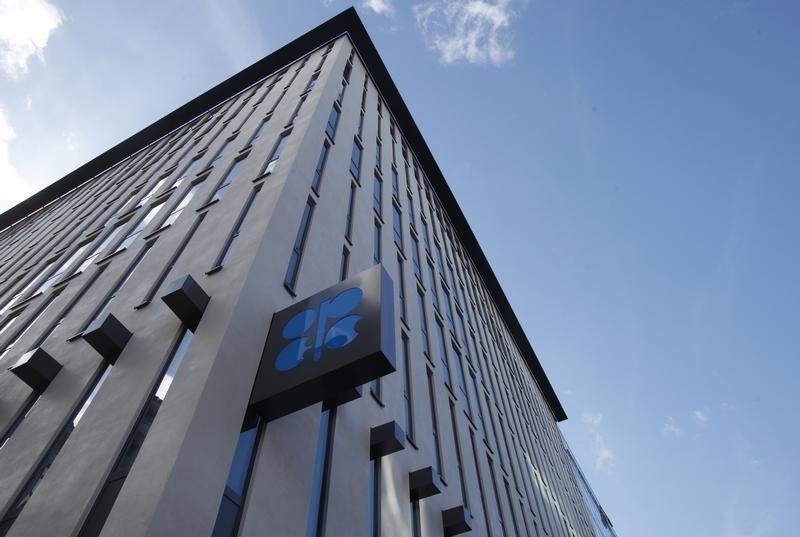Gold prices cool after hitting over 2-week high on Fed independence fears
(Bloomberg) -- Experts from OPEC+ recommended that oil ministers consider a larger production cut when they meet this week, as the havoc wrought on the world economy by the coronavirus prompted Wall Street to slash forecasts for energy demand.
After a meeting on Tuesday -- overshadowed by the logistical difficulties of gathering amid a raging global outbreak -- the group’s Joint Technical Committee suggested an additional reduction in supply of between 600,000 and 1 million barrels a day during the second quarter, delegates said. That’s potentially a larger cut than it recommended last month, but falls short of some estimates of the demand hit from the virus.
The Organization of Petroleum Exporting Countries and its allies face an unprecedented challenge as the epidemic that started in China threatens to become a global pandemic. Growth in fuel consumption could be wiped out this year and prices have just had their biggest weekly drop since the world financial crisis.
To secure a supply cut that could stop the rout, the group must overcome Russian resistance while also grappling with the risks of bringing together delegations from 23 nations as the deadly disease continues to spread. One of those members, Iran, has a serious outbreak at home affecting top government officials.
With flights canceled in Europe, schools closed in Japan, towns quarantined in Italy and a rising death toll from Iran to Washington state, the coronavirus crisis has gone global, and with it, its impact on energy demand. For only the fourth time in almost 40 years, oil consumption may not grow at all in 2020, according to a growing minority of traders, investors and analysts. Goldman Sachs Group Inc (NYSE:GS). on Tuesday became the first major Wall Street Bank to forecast a contraction in demand this year.
That possibility is reflected in crude, which slumped 16% in New York last week, the biggest decline since December 2008. The market has rebounded somewhat, but at below $48 a barrel on Wednesday, prices remain too low for most of the cartel’s members to balance their budgets.
“The recommended 600,000-barrel-a-day additional cut for the second quarter of 2020 will be seen as too little,” Mohammad Darwazah of consultant Medley Global Advisors said in a note. “It is clear that the group is mulling a deeper production pullback.”
The JTC met on Tuesday to reappraise the impact of the epidemic, which has worsened since they last met in February. That will be followed by a gathering on Wednesday of the Joint Ministerial Monitoring Committee -- the body that overseas the alliance -- and the ministerial meetings on Thursday and Friday.
In an effort to limit potential contagion as officials descended on Vienna, OPEC said medical advisers would conduct screenings at the entrance to detect staff or delegates who might have high temperatures. Some staff will be told to work from home. OPEC told national delegations to limit their size to the “bare minimum,” pressing ahead with the meeting even as conferences across the globe were canceled.
It took the unprecedented step of blocking journalists from entering its headquarters during the meeting, and scrapped the final press conference in favor of a webinar. The cartel’s gatherings typically attract a contingent of hundreds of officials, reporters, TV crews, analysts and consultants from around the world.
OPEC+ has been struggling to manage the price impact from the U.S. shale boom since the alliance was formed in late 2016. It kicked off a new round of supply curbs at the start of this year, removing about 2.1 million barrels a day from the market. Under the JTC’s recommendation, even deeper cuts would be implemented only in the second quarter, and the group would return to its existing curbs in the second half, the delegates said.
